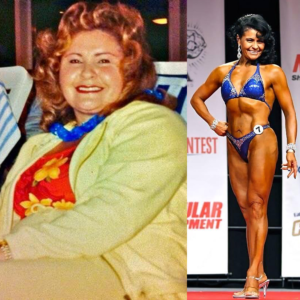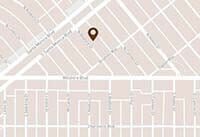
Are you considering weight loss surgery and looking for something that’s effective, safe and has a relatively low rate of complications? Then Lap Band surgery might be the right choice for you. Lap Band surgery can help you lose weight, but that’s just one of the many benefits. Lap Band surgery can also reduce the effect of your excess weight on any current or future obesity-related health problems. Research shows that obesity can cause diabetes, hypertension, high cholesterol, fertility problems or even some cancers. Many patients experience long-term remission of type 2 diabetes or eliminate obstructive sleep apnea (heavy snoring) once they have lost a significant amount of weight with Lap Band Surgery. Significant weight loss can even improve libido within romantic relationships as well as fertility.
Lap Band induced weight loss has also been shown to improve hypertension, better control of blood cholesterol, and even decrease the risk of certain cancers. These are just a few of the health benefits of weight loss provided through bariatric surgery. Lap Band surgery can certainly extend your life if you’ve been suffering from an obesity-related disease. You’ll feel healthier, look healthier and you’ll be healthier, which for many is the most significant benefit.
Losing Weight With Lap Band Surgery
Losing weight from Lap Band surgery is a process, not just a procedure. The procedure itself is fairly straightforward, last about an hour and has a fairly quick and easy recovery. It’s typically done as an outpatient procedure. Patients typically go home 1-2 hours after surgery and can return to work within 2-3 days of recovering at home. Compared to other surgeries it is much less harsh on your body with a lot less pain or discomfort, the early ability to walk around without difficulty after surgery and only a day or two of recovery in the comfort of your own home. Most patients don’t need heavy narcotics for pain control after their Lap Band surgery.
The weight loss starts immediately after surgery and, at first, is completely effortless, as an overwhelming majority of patients do not experience any hunger or cravings. To prevent any nausea or vomiting, most surgeons will recommend a 1-2 week course of a liquid-only diet, which with further contribute to your weight loss while making sure you stay well hydrated. You will also be encouraged to walk a lot or start light cardio to reduce the risk of blood clots in the legs, improve the expansion of your lungs and help with your bowel function. This physical activity will also contribute to fairly rapid and easy loss of the first 10-20 lbs.
At some point, however, the body will realize that it is losing too many calories and your own physiology will try to compensate and slow down the weight loss. This is where the unique adjustability feature of Lap Band surgery comes into play. Once you’ve reached a plateau where despite your best efforts you cannot achieve any measurable weight loss your surgeon will be able to inflate your Lap Band and further restrict the passage of food into your stomach. The Lap Band inflation also results in higher pressure on your stomach tissue, which sends signals to your brain and thus suppresses the feeling of hunger and food cravings, bringing about gradual, continued and lasting weight loss.
Lifestyle changes are a necessity to lose weight with any bariatric procedure. However, the Lap Band’s unique ability to be adjusted, aside from the ability to induce new weight loss achievements, also imposes the necessity of frequent interaction between physician and patient, which in itself results in better overall weight loss and fewer complications. Following the instructions of your Lap Band surgeon is as important and necessary for your ultimate outcome as is the skill with which your Lap Band surgery is performed.
Will You Lose 60% Of Your Excess Weight With Lap Band Surgery?

Most patients will be successful in losing weight after Lap Band surgery. Of course the definition of success may vary from patient to patient. For measurement sake physicians evaluate weight loss as either a percentage of total weight (ex. 20lbs will be 10% total weight loss for someone who weighs 200lbs) or a percentage of excess weight, where excess weight is the difference between the patient’s ideal weight based on standardized measurements of height, gender and body frame and the patient’s actual weight (ex. if somebody is 40lbs overweight, loses 20lbs, that would be 50% excess weight loss). So when interpreting medical data from medical articles, one should always be aware if the authors are measuring the percent of total weight loss or percent of excess weight loss. With the Lap Band, as well as any other surgical procedure such as gastric sleeve or gastric bypass, the extent of weight loss will also very much depend on the level of the patient’s commitment and their ability to stick with the physician recommendations and their ability to implement a vigorous exercise into their daily routine. So depending on the level on personal commitment, patient’s can enjoy even 100% excess weight loss (or even more), or in the case of the absence of individual commitment or participation, patients may see less weight loss or weight loss that is significant but doesn’t last very long (some regain is common with all weight loss operations). However, even with a moderate level of patient participation, there will still be an initial major and significant weight loss after Lap Band surgery.
Patients frequently concern themselves with the rate of weight loss, but, they should take into account the fact that it takes many years to gain the weight, so other tissues (skin for example), organs and the entire body, adjust to it gradually. Ideally, losing weight gradually is preferable to allow your body to adjust (ex. skin and soft tissue contraction to avoid sagging). Faster weight loss has the benefit of giving rapid results and keeping up patient’s enthusiasm and level of participation, however, it may predispose them to vitamin and nutritional deficiencies and aesthetic results that are less than desired and may require patients to undergo corrective plastic surgery. Regardless of which procedure you choose, you should keep these issues in mind and discuss them with your bariatric surgeon, to make you more knowledge about your options and possible outcomes.
Have A Support Network To Help With Post-Surgery Ups And Downs

We highly recommend that you have a support network of family, friends or even other people who are also on their own weight loss journeys to help you through your journey. You’re going through a lot of changes post-surgery and your body and mind need to adjust to your new, better self.
Many people who have had Lap Band surgery are simply ecstatic to be losing weight safely and effortlessly. Everyone goes through a process as they transform into their “new selves”. Having a network of family, friends or even a support group will help you feel much more in control of your new reality. They’ll also be around to help cheer you up and celebrate each of your new victories, or help with advice when you have questions.
When you lose weight you may feel like you can do things you have never been able to before, but you may not realize that your muscles are not yet strong enough to support those efforts. Because of this, joint and ligament injuries may occur since they compensate for the lack of ability in your muscles. This is why you may want to consider hiring a personal trainer to oversee safe exercise.
You’ve made the decision to change your life, but it’s vitally important to have family members or loved ones in your corner to support your journey. Many times a mother or wife will undergo a weight loss procedure only to find that their partner or children complain that she isn’t cooking all the good (unhealthy) food she used to, or that the fridge or pantry is no longer full with all the junk food it used to be. Your weight loss journey, including your new, healthier decisions, will affect those closest to you, especially those that live with you. That is why it is important that they all buy in and support your journey to help contribute to your success. This buy-in is so important that it is advisable to bring your family and/or loved ones with you to your consultation with your bariatric surgeon.
After Your Lap Band Surgery, Give Yourself Time

No matter which bariatric surgery you choose, depending on how well you stick to the diet recommended by your bariatric surgeon, you can expect to experience dramatic results within the first year. Following guidelines, and continuing to exercise and eat healthy foods will increase your chances of continued weight loss and ensure that your weight loss is safe.
Long-term diet and exercise are essential if you truly want to change your life after bariatric surgery. Lap Band surgery patients can expect to continue to lose weight for at least another year if they are compliant with their bariatric surgeon’s instructions.
Are You Ready To Transform Your Life With Lap Band Surgery?
Are you ready to regain your health and beauty, lose weight, and reclaim your health? Bariatric surgery can help you live a healthier, more fulfilling life. Dr. David Davtyan and his caring staff at The Weight Loss Surgery Center of Los Angeles are here for you three convenient locations in Beverly Hills, Rancho Cucamonga, and Glendale. Our top bariatric surgery center offers some of the finest weight-loss treatments in L.A.
Call us today at 877-9-BE-SLIM (877-923-7546) and schedule your initial complimentary consultation. We look forward to helping you take the first step on a journey to a whole new you! Learn more about Lap-Band surgery today! Just contact us to get started.
Posted on behalf of Dr. David G. Davtyan MD, FACS, FICS





